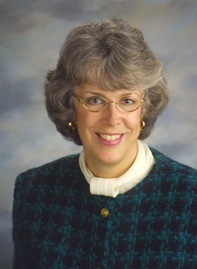First in the nation: UW-Madison establishes post-doc in feminist biology
Feminist biology — which attempts to uncover and reverse gender bias in biology — will be the focus of a new, endowed fellowship in the Department of Gender and Women’s Studies at the University of Wisconsin–Madison.

Janet Hyde
“The program is the first in the nation — and probably the world,” says Janet Hyde, director of the campus Center for Research on Gender & Women.
The first post-doctoral fellow, Caroline VanSickle, is now completing her Ph.D. in biological anthropology at the University of Michigan. When her two-year fellowship begins in September, she plans to continue her research on female human ancestors by investigating changes in pelvis shape — and therefore childbirth anatomy — during the course of human evolution.
Her focus will be South African australopithecine species dating from 1.5 million to 3 million years ago. VanSickle will also teach gender and biology and develop a new course in the area.
Feminist biology aims to develop new theory and methods in biology that reflect feminist approaches, and “is raising new questions and suggesting novel solutions,” says Hyde.
“Feminist analysis in science has already revealed and challenged scientific errors resulting from gender bias on the part of scientists, including ways in which observer bias distorted our understanding of primate behavior,” Hyde adds. “Even on the cellular level, the biology of sex determination in the embryo was initially misunderstood because scientists assumed that the Y chromosome would have a leadership role.”
Hyde notes that the late Dr. Ruth Bleier of UW–Madison, a physician and neuroscientist, was a founder of feminist biology who wrote two essential books in women’s studies, including, in 1984, “Science and Gender: A Critique of Biology and Its Theories on Women.”
The Wittig Postdoctoral Fellowship in Feminist Biology is funded by a generous bequest from the estate of Gertraude Wittig. Born in Germany, Wittig earned her doctorate in zoology and botany from the University of Marburg in 1955. She came to the U.S. on a Fulbright Scholarship and later worked for the U.S. Department of Agriculture as a researcher in insect pathology and electron microscopy.
At the USDA, and later on the biology faculty at Southern Illinois University, Edwardsville, Witting worked tirelessly to encourage women to participate in the sciences. Although Wittig had no previous connection to UW–Madison, Hyde says, “She directed her gift to this university in recognition of the strength of the Department of Gender & Women’s Studies in focusing on the intersection of gender and science.”




